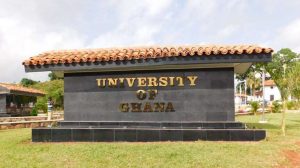This Ghanaian founder is building the university of the future by focusing on problem-solving, not professors
With 50% of its population under the age of 19, Africa will be home to the world’s largest workforce by 2035: a billion-plus people who will transform the continent. Statistics like these inspired Ghanaian entrepreneur Fred Swaniker, who opened the African Leadership Academy high school in Johannesburg, in 2008, to turn his attention to higher education. He founded his first African Leadership University (ALU) in Mauritius in 2015, and, two years later, opened a second undergraduate campus in Kigali, Rwanda.
The three- to four-year-long programs ask students to pursue real-world missions (rather than academic majors), and bring tuition down to as low as $4,000 per year, per student, by embracing online and peer-to-peer learning. They also offer an innovative financing model: free tuition in exchange for 10% of postgraduation earnings for 5 to 10 years, and the clock starts at the same time for everyone, regardless of when they find employment. Today, 1,200 students are enrolled in ALU, and Swaniker is tweaking the model to spread even more quickly throughout the continent. Last fall, the first outpost of the low-cost ALX leadership accelerator opened in a Nairobi coworking space, offering a six-month-long course of study to 200 students. Swaniker is targeting Cape Town for future ALX locations, and is in talks with the government of Botswana about a new ALU campus.
Fast Company (FC): Why tackle higher education?
Fred Swaniker (FS): Eighty percent of our academy graduates were leaving Africa to go to college. As an African trying to develop African leaders, that didn’t sit well with me. I realized that we need to have our own world-class universities, but we don’t have the time, money, and resources of the rest of the world. So we have to design a new educational model for [Africa’s] large, untapped talent pool. If we don’t, this could be a global crisis. But if we get it right, this could be a massive opportunity for the world.
FC: How does ALU’s curriculum differ from that of other universities?
FS: We started by mapping out what we call the meta skills of the 21st century—things like critical thinking, leading others, communicating for impact, analyzing data to make good decisions—and created an eight-month program that our first-year students go through before they do an internship [on-site at a company]. Instead of giving them a menu of academic disciplines, we ask students to choose from a range of challenges and opportunities, including healthcare, education, governance, climate change, conservation, and urbanization. Under urbanization, for example, we look at the fact that 800 million people will move into African cities over the next 30 years. That’s going to create a bunch of challenges around housing, urban planning, civil engineering, and more. But it also means opportunities for people to come up with innovations—and businesses—that solve them.
FC: Where does faculty fit into this?
FS: We don’t have enough people with PhDs [in Africa], and we don’t have enough time to develop them, so we’re shifting from being professor-centric to student-centric. We live in a world where information is ubiquitous. Students can curate their own learning experiences. They decide what online courses they want to take related to [their mission]. They go out and interview experts, build prototypes, do experiments, shadow professionals, read books, and publish a thesis. The second thing [we do] is let students teach each other, because explaining something to someone else is a powerful way to learn. So we bring students together and have them work on projects in teams.
FC: How does ALX extend your mission?
FS: [When our first-year ALU students] began their internships, they started receiving full-time job offers—after just eight months in school. We thought, If we have a program that is getting people job-ready, why don’t we offer [that curriculum] as a stand-alone? We’re offering it first in Kenya, to people who already have college degrees but lack employable skills. Over time we’ll start taking kids straight out of high school and expand to a multiyear program so that you [could] join ALX instead of going to college. Because we use coworking spaces rather than build our own campuses, we can open quickly and bring down the cost of education.
FC: As a graduate of Minnesota’s Macalester College, do you feel any qualms about moving away from a traditional liberal arts education?
FS: We’re trying to create the learning institutions of the future—places that focus on teaching people how to solve problems. Students interested in pursuing literature or history can absolutely do that within our model. But we also give them skills so they can use their passion to do something in the world. They can communicate properly, they can manage projects, they can lead teams. As we develop an educational model for Africa, we don’t want to build on the past. It’s like when the mobile phone was invented. It was developed in the U.S., but many of the innovations, like mobile money, were [pioneered] in Africa. A lot of innovation came because we didn’t have the legacy system.
Source: Fast Company







